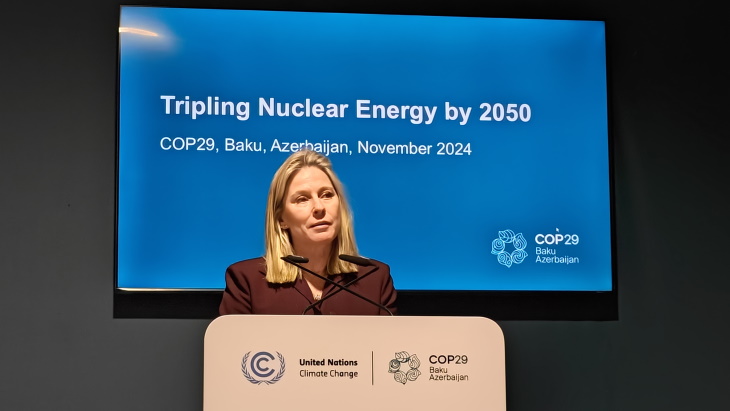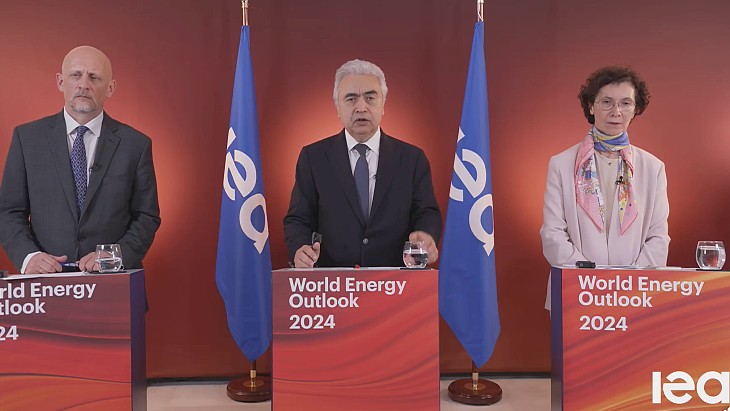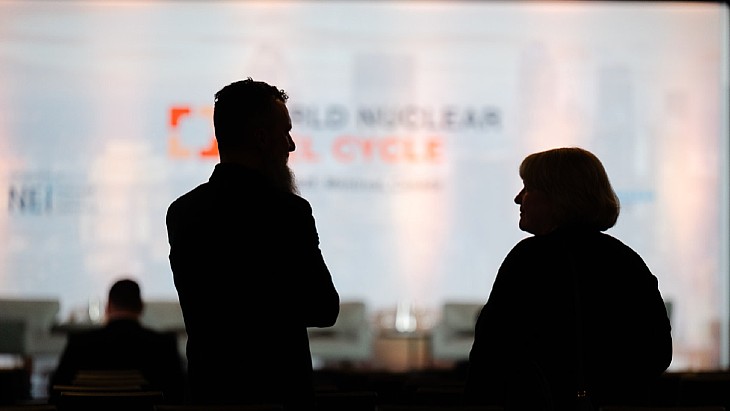Global appeal for nuclear power as ministerial conference closes
.jpg)
"The topical discussions we had over the past three days, I think, encapsulate very well the opportunities and the challenges we have ahead of us," Grossi said as he closed the conference, attended by more than 800 participants including ministers, senior officials, policy makers and experts from 69 countries and nine international organisations. "In four years, another conference like this will take place; let's make it our commitment that many of the things that we said during these days in Washington needed to be done, are going to be already well under way. It is not only the good thing to do. It is what we all need."
Participants in the conference's high-level talks had agreed that nuclear power, which emits no greenhouse gases during operation, can make a significant contribution to achieving net zero emissions by 2050, in line with the Paris Agreement, said US Energy Secretary Jennifer Granholm said as she closed the conference alongside Grossi.
Nuclear power is currently the only low carbon technology that can produce electricity and heat at scale, she said: "It produces electricity at predictable costs. And it enables the massive expansion of wind and solar by providing dispatchable power and stabilising grids. That makes it an attractive and reliable source of scalable power, which can support economic development, while helping meet the objectives of the Paris Agreement and the Sustainable Development Goals."
At the start of the conference Grossi said the convergence of the global climate and energy crises had driven up fuel prices in many regions and highlighted the need for clean and secure supplies of energy, reviving interest in nuclear power. The conference ended a day after the release of a United Nations Environment Programme report on the world's efforts to prevent global warming from crossing the threshold into catastrophic climate change stated there is currently no credible pathway in place to limit temperature rises to 1.5°C and said only an urgent system-wide transformation can avoid an accelerating climate disaster.
Nuclear power plants are currently operated in 32 countries, providing some 10% of the world's electricity and accounting for 25% of its clean electricity, and the IAEA said it is supporting around 30 more that are embarking on, or considering, the introduction of nuclear power.
"Several demonstration plants and first-of-a-kind SMR (small modular reactor) units are expected to begin operating in the coming years," Granholm said. "Governments and public-private partnerships provide human and financial resources and create favourable conditions to advance these kinds of demonstration projects."
The conference included national statements about nuclear power from government ministers and officials; addresses by Fatih Birol, head of the International Energy Agency, and - by video - investor and philanthropist Bill Gates; panel sessions and other events.
The International Ministerial Conference on Nuclear Power in the 21st Century was hosted by the USA through the Department of Energy and organised in partnership with the International Atomic Energy Agency and in cooperation with OECD/NEA. Previous conferences in the series took place in Abu Dhabi (2017), St Petersburg (2013), Beijing (2009) and Paris (2005).

_99697.jpg)








_50521.jpg)

